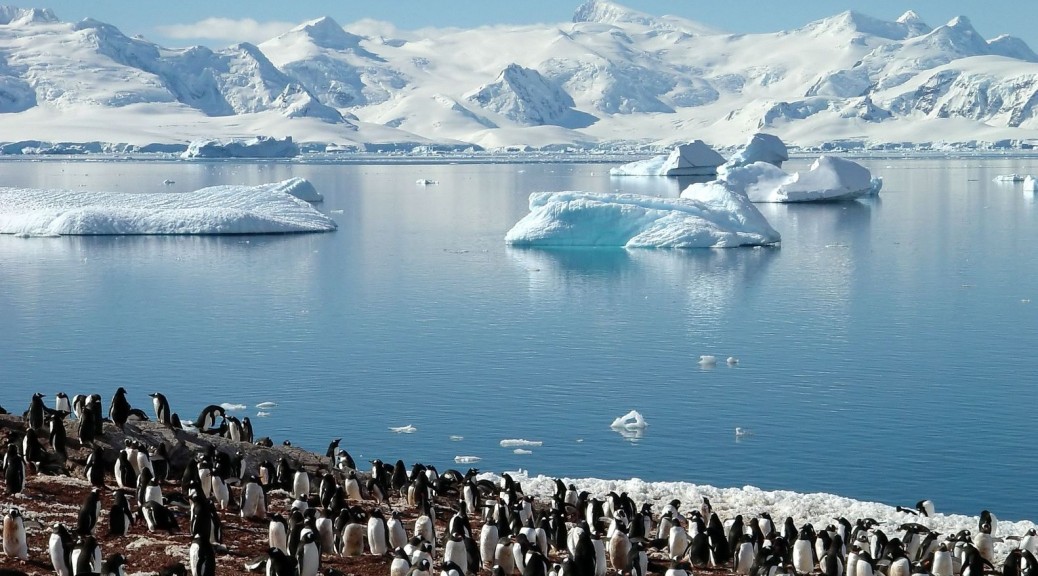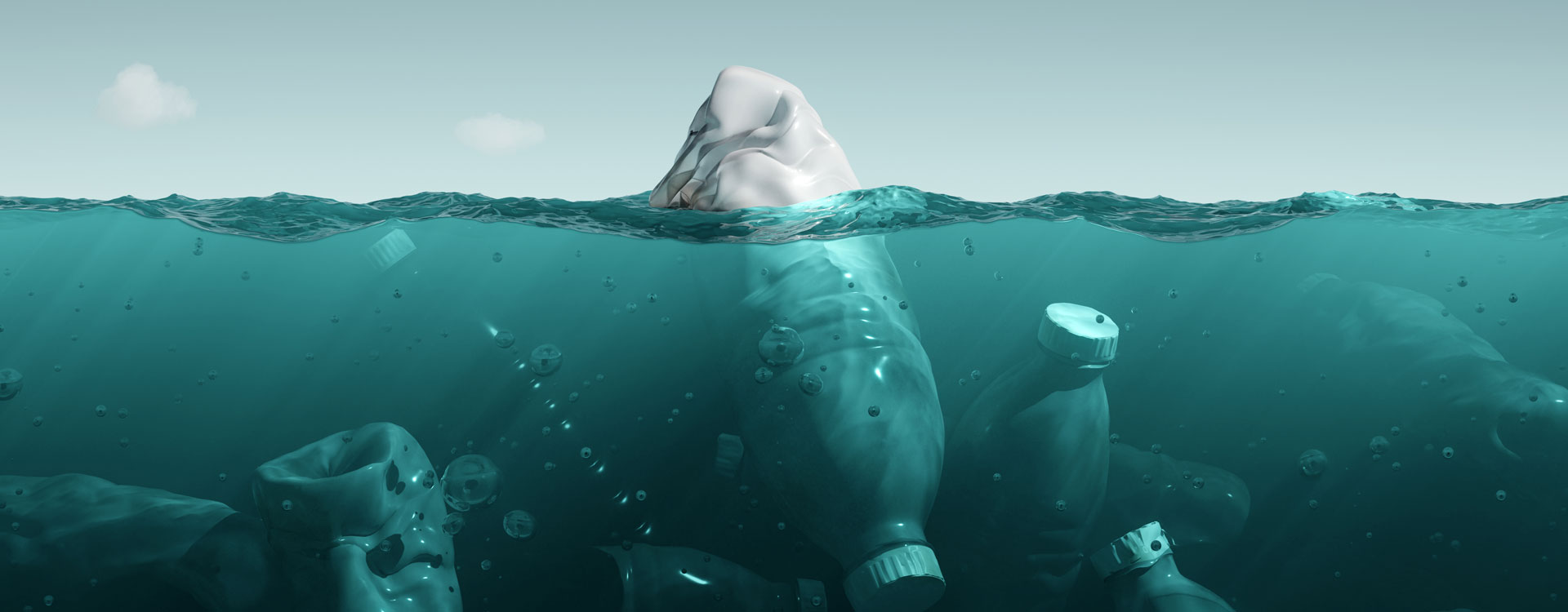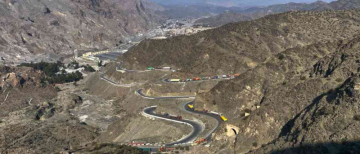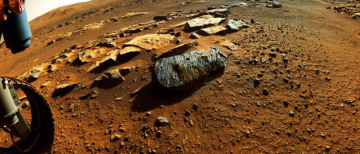A new study cautions that melting Antarctic ice is having a significant impact on both marine life and the global climate by slowing deep ocean water circulation in addition to rising sea levels.

The peer-reviewed study, conducted by researchers from the University of New South Wales and released on Wednesday in the journal Nature, simulated the effects of melting Antarctic ice on deep ocean currents that help fish near the surface by flushing nutrients from the ocean floor.
According to three years of computer modeling, if the world continues to burn fossil fuels and produce high amounts of pollution that heats the planet, the Antarctic overturning circulation, also known as the abyssal ocean overturning, is likely to slow 42% by 2050.
A slowdown is anticipated to hasten glacier melt and possibly bring an end to an ocean system that has supported life for countless years.
According to our predictions, the Antarctic overturning would cease this century, said Matthew England, the study's coordinator and deputy head of the Australian Research Council's Centre for Excellence in Antarctic Science.
"These overturning circulations have changed over the course of around 1,000 years in the past; currently, alterations within a few decades are being debated. It is pretty startling as a result, he remarked.
The majority of earlier research has concentrated on the Atlantic Meridional Overturning Circulation (AMOC), a network of currents that carries heated water from the tropics into the North Atlantic. Afterward, the colder, saltier water descends and moves south.
While its counterpart in the Southern Ocean is less well known, the report's authors stated in a briefing that it plays a crucial role in moving nutrient-rich water north from Antarctica, across New Zealand, and into the North Pacific, North Atlantic, and Indian Oceans.
Deep ocean water circulation is essential for maintaining the health of the ocean, and it also helps to store carbon that is taken in from the atmosphere.
The study claims that while a slowdown in the AMOC would result in colder deep Atlantic Ocean waters, a slower circulation of dense water in the Antarctic would result in warmer deep Southern Ocean waters.
The potential for feedback to further ocean warming at the foot of the ice shelves surrounding Antarctica is one of the worrying aspects of this slowdown. And that would cause more ice to melt, amplifying or reinforcing the initial shift, according to England.
How does it work?
Scientists said that while Antarctic ice is expected to melt faster as global temperatures rise, the circulation of deep water won't change in fact, the opposite will happen.

Melted Antarctic ice can sink to the ocean's deepest layer in a healthy system due to its dense, cold, and salty consistency. It moves north from there, carrying carbon and more oxygen than would normally be found in water that is about 4,000 meters deep.
According to scientists, as the current moves northward, it agitates deep layers of debris on the ocean floor, which feed the bottom of the food chain and are the nutrient-rich remains of decomposing marine life.
In specific regions, generally south of Australia in the Southern Sea and in the jungles, this supplement rich virus water pushes toward the surface in a cycle called upwelling, conveying the supplements to higher layers of the sea, Britain said.

However, the study on Wednesday found that melting sea ice "freshens" the water around Antarctica as global temperatures rise. This makes the water less dense and less able to sink to the bottom as it once did.
Steve Rintoul, a co-author of the report who is from Australia's Commonwealth Scientific and Industrial Research Organisation and the Australian Antarctic Program Partnership, stated that the Antarctic overturning is a crucial component of the nutrients that are brought back to the surface by sea life.
"We know that nutrients exported from the Southern Ocean support about three quarters of global phytoplankton production – the base of the food chain," he stated of other current systems.
We have demonstrated that by 2050, the sinking of dense water close to Antarctica will decrease by 40%. And we won't start to see the effects of that on surface productivity until 2050 or 2100.
England continued, There will be people living then who were born today. Therefore, it is certain to pose a challenge to societies in the future.
Warning about climate change
The authors of the report claim that the slowed down overturning of the Antarctic ocean has other repercussions for the planet. It could shift rain bands in the tropics by as much as 1,000 kilometers (621 miles), for instance.

If you completely turn it off, one band south of the equator experiences a decrease in rainfall, while the band to the north experiences an increase. So we could see influences on precipitation in the jungles," said Britain.
In its most recent report, which was released earlier this month, the Intergovernmental Panel on Climate Change (IPCC) issued a warning that the effects of rising global temperatures were more severe than anticipated. It also stated that climate change's consequences are becoming increasingly perilous and unchangeable if nothing is done immediately.

The IPCC report found that the goal of keeping global warming to 1.5 degrees Celsius (2.7 degrees Fahrenheit) above preindustrial levels was still possible. However, the longer the world continues to fail to reduce carbon pollution, the harder it is to achieve.
England points out that ice melt from Antarctic ice shelves and sheets is not included in the IPCC predictions.
England stated, "That's a very significant part of change that is already underway around Antarctica, and more will come in the next couple of decades."
In addition to the previous warnings, the study, according to Rintoul, was yet another urgent warning.
The statement states, "We will commit ourselves to that future with the choices we make over the next ten years." despite the fact that a decreased nutrient supply may take decades to have a direct impact on fisheries."
© Vygr Media Private Limited 2022. All Rights Reserved.

























